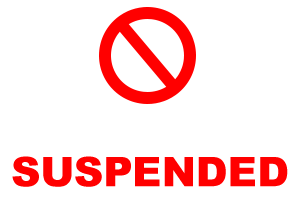

This website is temporary suspended, What does website suspended means?. When a website/app has received an “account suspended” notice, it means that the web host has taken your site down temporarily. We do it for a number of reasons like malware infection, excessive use of server resources, payment failure, and other policy violations.
What should you do? Contact Website owner and alert them
This website is Suspended